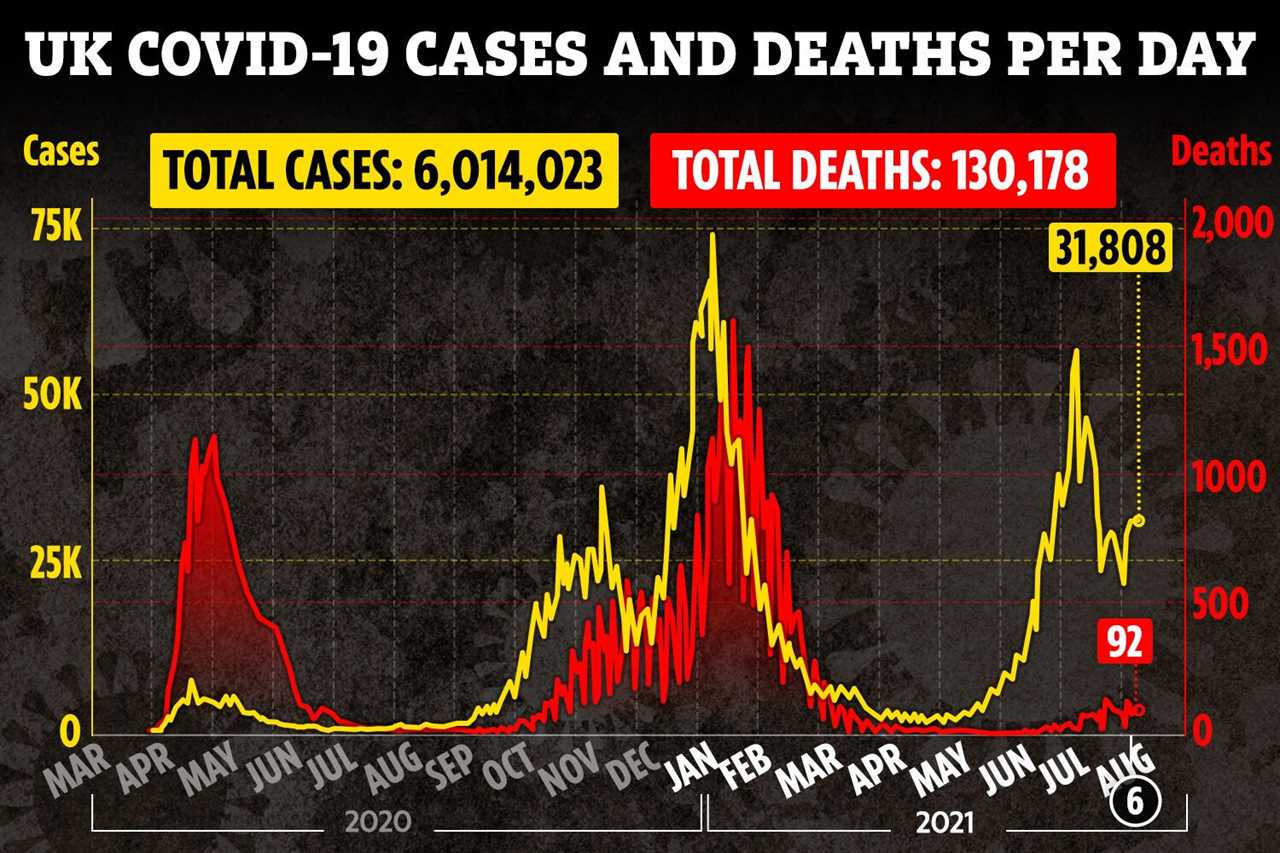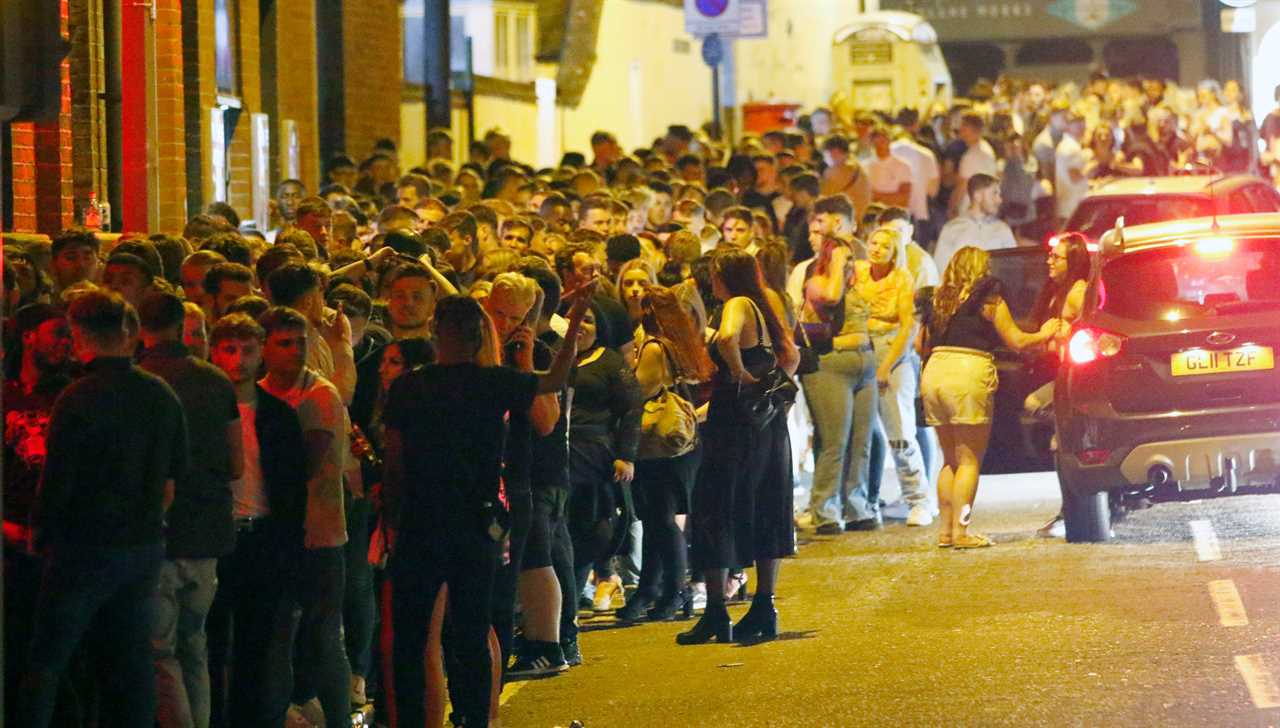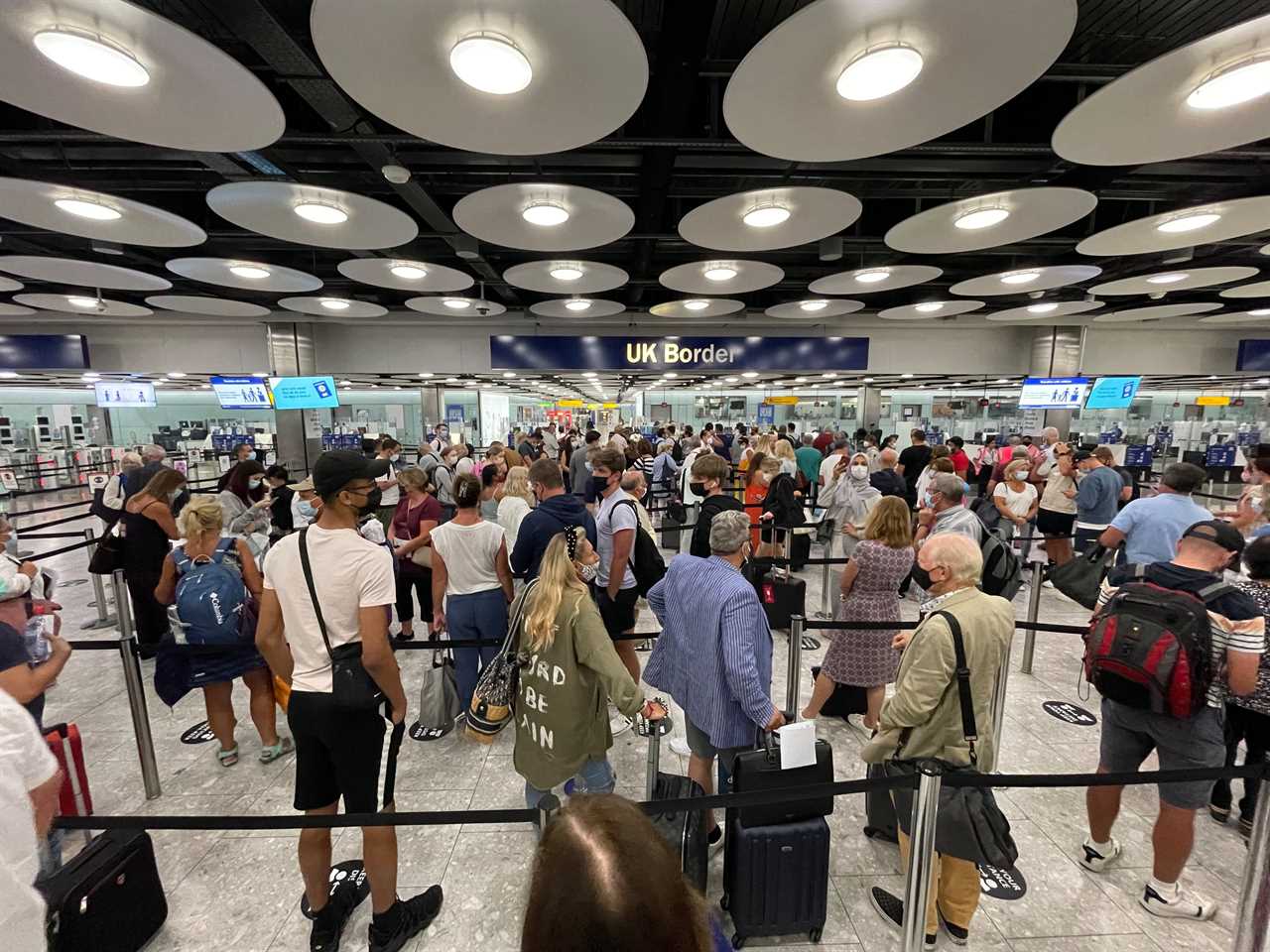COVID cases are in retreat with daily infections averaging 30,000 – just a third of the grim prediction that 100,000 people a day would be struck down by the virus as lockdown was lifted.
Experts now hope the UK will never again be put into another lockdown despite health bosses warning the bug could quickly get out of control after Freedom Day.

The good news comes just weeks after Health Secretary Sajid Javid warned of soaring cases over the summer.
But despite that, Britain passed a bleak milestone yesterday, with a whopping six million testing positive since the pandemic began.
Sources told the Times the PM was “disbelieving” when he saw data showing cases had stabilised after restrictions eased last month.
The Government’s scientific advisers had warned ending rules on mask-wearing and social distancing would lead to a significant spike in both cases and hospitalisations.
However, this hasn’t yet happened.
Sage models for this point in time predict more than 6,000 people in hospital at the low end, and more than 25,000 as a worst-case scenario.
Currently, 5,631 patients are admitted to wards.
It comes as:
- Britain’s R-rate is shrinking faster than almost anywhere else in the world – suggesting the third wave is over
- The AstraZeneca jab is so effective, those given the vaccine may not need boosters
- However, Sage has warned a Covid mutation bringing ‘more severe disease’ could be created when two variants infect one person
- A travel expert sparked outrage yesterday after sharing a way for red-list holidaymakers to get around quarantine
- More than 30,000 UK children are battling long Covid with experts fearing a push to vaccinate the young has come too late
Boris Johnson is now reportedly “the most pessimistic person in the room” during talks about case numbers and was “scarred” by having to cancel the festive season for millions.
“He is still haunted by Christmas,” a source said.
However, the data is impossible to ignore. Days after replacing Matt Hancock, Mr Javid said officials expect 100,000 cases a day by the end of summer. Yesterday, 31,808 positive tests were recorded, and daily cases are hovering at around that number.
The Government has been awaiting critical figures from the Office for National Statistics on infections. These arrived this week – and show a clear fall in infections.
It’s reported that scientists are increasingly convinced the initial surge in numbers was due to crowds gathering to watch the Euros.
The rapid fall after the tournament ended has been compared to the declines seen as lockdowns were introduced.
‘NO AUTUMN LOCKDOWN’
Experts also believe the pingdemic – which has caused misery for businesses around the country – may have encouraged Brits to be more cautious about social contact.
And many have decided to stay in the UK for their summer holidays after a headache over the traffic light system.
Sage data also shows that daily contacts are at a quarter of pre-pandemic levels, and lower even than last summer, when ministers encouraged a return to normality with Eat Out to Help Out and a drive to get people back to offices.
One minister told the publication “the vast majority of the country wants to go slowly”, adding: “The overwhelming majority of people are still risk-averse.
“They’re still wearing facemasks and social distancing.”
UK APPROACHES POST-PANDEMIC LIFE
Sage adviser Professor John Edmunds said he doesn’t expect a September lockdown – and credited “amazing” vaccines with the turnaround.
Sir John Bell, regius professor of medicine at Oxford University, said that autumn was “going to be fine”, adding: “We’re past the need for lockdowns because of the vaccine.”
One minister said Britain is approaching post-pandemic life.
“We’re almost living with it now, we’re getting back to business as usual,” they said.
Others said there’s anxiety about declaring the good news – because it’s “uncannily like last summer”, after which infections spiralled, reaching a peak in January.
No10 are apprehensive about relying too much on the good news before schools return in September, it’s understood, and most scientists expect a rise next month.
One said there’s still lots we don’t know about Covid – and there were no models last summer that showed the disease in retreat during August.
“It just shows you we don’t have a clue what we’re doing,” they said.








